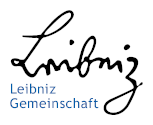- Das Institut
- Forschung
- Diktaturen im 20. Jahrhundert
- Demokratien und ihr historisches Selbstverständnis
- Transformationen in der neuesten Zeitgeschichte
- Internationale und transnationale Beziehungen
- Editionen
- Dissertationsprojekte
- Abgeschlossene Projekte
- Dokumentation Obersalzberg
- Zentrum für Holocaust-Studien
- Berliner Kolleg Kalter Krieg
- Publikationen
- Vierteljahrshefte
- Archiv
- Bibliothek
- Zentrum für Holocaust-Studien
- Aktuelles
- Termine
- Presse
- Neuerscheinungen
- Aus dem Institut
- Themen
- Reordering Yugoslavia, Rethinking Europe
- 75 Jahre Institut für Zeitgeschichte
- München 1972
- Confronting Decline
- Digitale Zeitgeschichte
- Das Deutsche Verkehrswesen
- Bundeskanzleramt
- Demokratische Kultur und NS-Vergangenheit
- Geschichte der Treuhandanstalt
- Akten zur Auswärtigen Politik
- Dokumentation Obersalzberg
- Edition "Mein Kampf"
- "Man hört, man spricht"
- Newsletter
Call for Papers
Solidarity and Humanitarianism in the Global South between Decolonization and the Cold War (1960s-1980s)
28-29th September 2020 at Centre Marc Bloch, Berlin
This two-day workshop, to be held in Berlin, aims to bring together doctoral students, post-doctoral students and experienced researchers working on the history of solidarity and humanitarian engagement in the countries of the Global South, from the 1960s to the 1980s, in the context of decolonization and the Cold War. On the one hand, it offers the opportunity to present and discuss current research. On the other hand, based on these concrete examples, it wishes to offer a space for exchange and discussion on the theoretical and methodological dimensions of this research field.
The workshop focuses on different areas of the Global South (Africa, Latin America and Asia), and in particular various post-colonial spaces at the end of the British, French, and Portuguese empires. It therefore asks what forms of commitments and actions were put into practice, at what pace, around which networks of actors from around the world and relying on which advocacy work. This perspective refers to a wide range of solidarity and humanitarian initiatives of the Global North (from the “West” as well as from the “East”) as well as to those between countries of the Global South. What was the impact of structural factors and changes of the Cold War, of the Sino-Soviet split, of the North-South divide and of conflicts between countries of the South? And how did these factors interact?
Different approaches will be discussed, questioning the actors, discourses and practices related to these calls and actions of solidarity and humanitarian aid. In particular, we will study the possible semantic and empirical shifts over time and according to the geographical areas concerned, between these two a priori distinct, but also overlapping fields of engagement. Therefore, the various ideas and concepts of solidarity and humanitarian aid should be reflected.
In particular (but not exclusively) the following themes and issues will be considered:
- Institutional or individual actors, states, political parties, NGOs and churches formed a wide range whose motivations, as well as possible interactions, should be studied here. Was there a tacit distribution of missions and places of engagement? Can we trace the development of specific networks and circulations from one continent to another? Were there any competitive effects with consequences in advocacy work as well as in the field? This naturally raises the question of the (limited) weight of nation-states in these dynamics as well as the role of international organisations as possible initiators of new forms of action and conception of solidarity and humanitarianism.
- In the complex sets of scales in which these actors acted, the local anchoring of solidarity and humanitarian actions is a crucial dimension to grasp and analyse. How does the interaction between various actors work – for example at the scale of a refugee camp, in other humanitarian crises, in a context of (civil) war and political conflict? What kind of cooperation and competition, adjustment or circumvention logics are we witnessing?
- The advocacy and communication work that accompanied the call for solidarity or humanitarian action took various forms and mobilized various media. What developments can be identified during these three decades and according to the areas concerned?
- Special attention will be given to methodological issues. The question of archives and sources is essential, between state, diplomatic, institutional and private archives, NGOs or associations (more or less sensitive to their own history) or oral history. More broadly, which historical-scientific methods and approaches (history of international politics, transnational and global history, New Imperial History, postcolonial studies, etc.) seem particularly suitable for the study of these topics? To what extent and how should different perspectives be combined?
Terms of participation:
Paper proposals (for a presentation of about 20 minutes) can be submitted in English or German and have to be sent to the following address before April, 21st 2020: bressensdorf[at]ifz-muenchen.de. They should contain a title and a brief abstract (max. 1 page) as well as a short biographic notice. The conference languages will be English and German, a comprehensive knowledge of both languages is thus desirable.
Travel and accommodation expenses can be covered according to the available budget.
Organisers:
- Agnes Bresselau von Bressensdorf (Berliner Kolleg Kalter Krieg am Institut für Zeitgeschichte München-Berlin)
- Silke Mende (Centre Marc Bloch)
- Caroline Moine (Univ. Paris-Saclay, CHCSC/MPI für Bildungsforschung)
- Bernd Rother (Bundeskanzler-Willy-Brandt-Stiftung)
The CfP is also available as PDF



